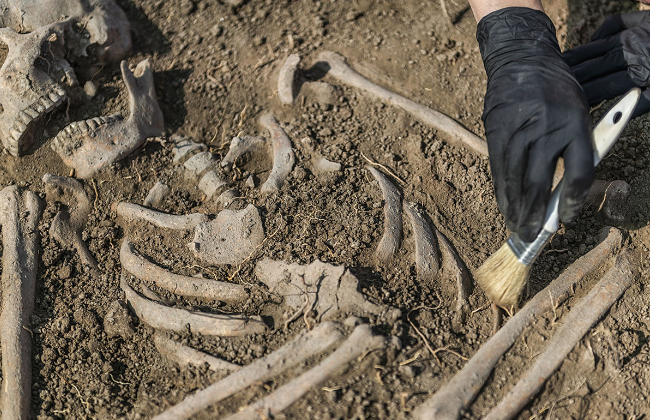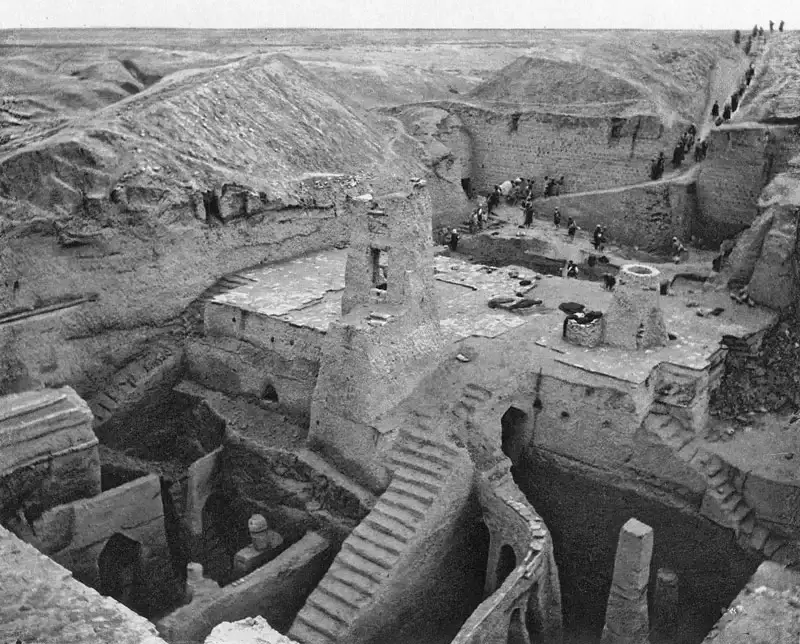Archaeology and anthropology are two distinct but closely related disciplines that focus on the study of human societies and cultures. While archaeology primarily deals with the material remains of past human cultures, anthropology is concerned with the study of the cultural, social, and biological aspects of contemporary and past human societies.
Archaeology involves the study of artifacts, structures, and other material remains of past human cultures. These remains can range from tools and pottery to entire cities and buildings. By studying these objects, archaeologists can reconstruct aspects of past societies, such as their economic systems, social structures, religious beliefs, and daily life. They can also use scientific methods to determine the age of these objects, as well as the environmental conditions in which they were created and used.
One of the key goals of archaeology is to understand the human past in all its diversity. By examining the material remains of different cultures, archaeologists can gain insights into how people lived, worked, and interacted with each other. They can also uncover evidence of cultural exchange and interaction, such as the movement of goods, ideas, and technologies between different regions and societies.
Anthropology, on the other hand, is concerned with the study of human societies and cultures in their entirety. This includes their cultural, social, and biological aspects, as well as their history and development over time. Anthropologists may study contemporary societies, as well as those of the past, using a range of methods such as participant observation, surveys, and interviews.
One of the key concerns of anthropology is the understanding of cultural diversity. By studying different cultures, anthropologists can gain insights into the beliefs, values, and practices that shape human societies. They can also explore the ways in which cultural differences have developed over time, as well as the factors that have contributed to cultural change and evolution.
Anthropologists may also study the biological aspects of human societies, including human evolution, genetics, and health. By examining the biological characteristics of different populations, they can gain insights into the factors that have shaped human diversity and adaptation over time. They can also explore the ways in which human biology and culture interact, such as the effects of cultural practices on health and wellbeing.
One of the key strengths of both archaeology and anthropology is their interdisciplinary nature. Both disciplines draw on a range of scientific and humanistic methods and perspectives, including history, linguistics, biology, and social theory. They also collaborate with other fields such as geology, environmental science, and computer science to develop new methods for studying human societies and cultures.
Another strength of these disciplines is their ability to address contemporary issues and challenges facing human societies. For example, anthropologists may study the impact of globalization on local cultures, or the ways in which climate change is affecting human societies around the world. Archaeologists may explore the ways in which past societies have dealt with environmental challenges, such as droughts or floods, and how these strategies can inform contemporary approaches to sustainability.
Despite their many strengths, archaeology and anthropology also face a number of challenges and limitations. One of the key challenges is the ethical issues involved in the study of human societies and cultures. For example, the excavation and analysis of human remains can raise questions about cultural sensitivity, respect for human dignity, and the protection of cultural heritage. Anthropologists may also face challenges related to the representation and interpretation of different cultures, particularly in cases where cultural differences have been used to justify inequality or discrimination.
Another challenge facing these disciplines is the need to engage with a wide range of stakeholders, including local communities, governments, and non-governmental organizations. This involves developing effective communication and collaboration strategies, as well as promoting ethical and responsible research practices.
![]()





